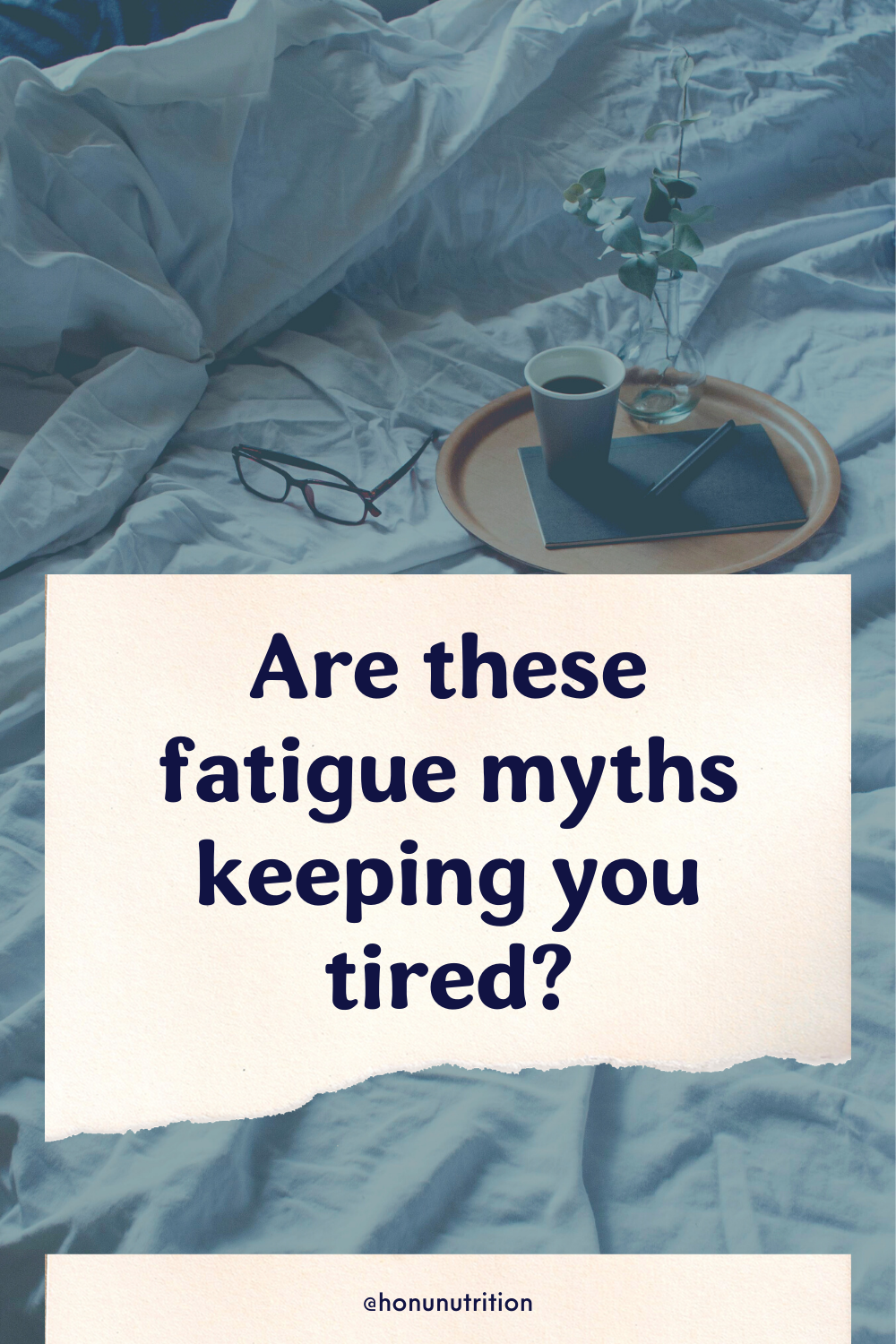Are these fatigue myths keeping you tired?
Fatigue is your body’s way of telling you it needs to recuperate. However, you may be surprised to learn that more sleep isn’t always the solution. Our bodies are more complex than that, so let’s clear up some common misconceptions about fatigue.
Last month on the blog, we talked about what fatigue means and how to overcome it. Today, let’s look at some common myths surrounding fatigue and uncover the truth behind them so you can reclaim your energy and get back to your life.
Myth #1: You just need to go to bed earlier.
We all hear that you need eight hours of sleep each night to wake up refreshed, but the reality is a bit more complicated, and fatigue isn’t one-size-fits-all. For example, you may get 8 hours of sleep every night and still feel exhausted during the day. It could be that the amount of sleep is good, but the quality of that sleep is poor. On the other hand, it could be another issue entirely, like an illness or a nutrient deficiency. If you’ve tried heading to bed earlier and you’re still feeling fatigued, it’s time to speak with your healthcare team so they can look at the whole picture and find a solution.
Myth #2: It’s no big deal; you’re just tired.
Don’t let anyone minimize your fatigue. Feeling chronically tired can affect your ability to do daily activities, cause or exacerbate mental health issues, and leave you more vulnerable to illnesses. It can also be a symptom of another condition. For example, after a shingles outbreak, I usually have to undergo three weeks of antiviral treatments. Those medications tax my liver, and by the last week and a half of that period, I am thoroughly exhausted. I could sleep for eight hours and wake up feeling like I hadn’t slept at all. After the treatment, I have to carefully recover with good nutrition and other modalities that help me feel like myself again.
This kind of fatigue is not just “feeling tired.” It’s a symptom that stems from medical treatment, and it can feel much more severe than a typical 3 p.m. slump. If you’re struggling with fatigue, be kind to yourself, and if you know someone struggling with fatigue, listen and validate their experience.
Myth #3: Juice cleanses give you energy
There isn’t a juice cleanse or detox tea out there that will cure your fatigue. Certain juices indeed support the body, but nutrient density is vital. A liquid or juice cleanse might make you feel invigorated for a couple of hours, but we will need fuel afterward. We need a balance of protein, healthy fats, and carbohydrates to power our bodies, and vegetable or fruit juice only contains carbs. We need more than that if we want energy.
Myth #4: Supplements fight fatigue
Companies sell many supplements by claiming they’ll give you more energy than your morning cup of coffee, but that’s usually not the case. I don't poopoo supplements, but there is a time and place to use them. It’s critical to understand how a specific mineral, vitamin, or concoction of herbs and adaptogens will or won’t support your body. Otherwise, you could quickly end up feeling worse or endangering your health. Choose your supplements with the help of a certified nutritionist or doctor.
Myth #5: I just need to eat less
Going on a very low-calorie diet may very well make your fatigue worse, along with signing you up for a host of other health problems. Everybody is different, but if you’re fatigued and already not feeling nourished by your food, eating less isn’t necessarily going to help. If anything, you’ll end up feeling exhausted. Vegetables are lovely, but if you restrict your food to mainly just produce, the overabundance of fiber can hinder your body’s ability to absorb nutrients from your meals, leaving you malnourished. We need fiber, but when you have too much of it, you don't have room for the protein, fat, or carbohydrates you need to feel energized.
Myth #6: I’m just not exercising enough
Adding movement to your day is so important, but avoid high-intensity exercise for a while if you’re fatigued. If you don’t have the energy for that challenging workout, pushing through it anyway will stress your body and lead to deeper exhaustion, inflammation, or even injury. On low-energy days, it’s best to take it easy with some gentle stretches or a walk around your neighborhood. There is no need to rush your exercise program, so take your time and listen to your body.
Ready to have more energy in your day?
You don’t have to feel tired all the time, and you don’t have to figure it all out on your own. If you’re ready to have more energy in your day, I’m here to help. Book your free virtual consultation with me today. Let’s get you feeling nourished and ready to greet the day!
It’s free and you can cancel anytime.

